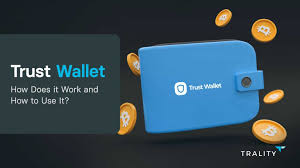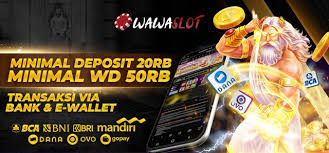
A Detailed Overview of Trust Wallet
AlexJones
- 0
- 326
Introduction
Trust Wallet is a decentralized, multi-currency wallet designed to store and manage a wide range of cryptocurrencies securely. It was created to offer users a simple and reliable way to store digital assets without relying on centralized exchanges. Since its launch, Trust wallet has gained considerable attention for its ease of use, multi-asset support, and security features. In 2018, it was acquired by Binance, one of the world’s largest cryptocurrency exchanges, further expanding its user base and capabilities.
In this article, we will explore the features, benefits, security protocols, supported cryptocurrencies, and the general use of Trust Wallet, giving users a comprehensive understanding of how this wallet functions in the cryptocurrency ecosystem.
What is Trust Wallet?
Trust Wallet is a non-custodial cryptocurrency wallet, meaning that the user is in full control of their private keys and digital assets. This is an important distinction from custodial wallets, where a third-party service (like an exchange) manages users’ assets. With Trust Wallet, users are solely responsible for their keys and security, making it a more private and secure option for storing crypto.
Trust Wallet supports a wide variety of blockchains and their native tokens, making it one of the most versatile wallets in the crypto space. It is available as a mobile application for both Android and iOS devices, with no web-based version. The wallet enables users to store, send, receive, and even stake a variety of cryptocurrencies, making it an all-in-one mobile wallet solution.
Key Features of Trust Wallet
- Multi-Currency Support: One of the primary advantages of Trust Wallet is its ability to support a wide array of cryptocurrencies. The wallet supports thousands of tokens across multiple blockchains, including Ethereum, Binance Smart Chain (BSC), Solana, Bitcoin, and many others. Trust Wallet also supports ERC-20, BEP-2, and BEP-20 tokens, as well as popular tokens like Bitcoin (BTC), Ethereum (ETH), Binance Coin (BNB), and stablecoins like USDT, USDC, and DAI.
- Private and Secure: Trust Wallet is a non-custodial wallet, meaning the private keys are stored directly on the user’s device, and no third party ever has access to the wallet. The wallet uses a local key storage system, meaning even Trust Wallet itself does not have access to your funds. This gives users full control over their digital assets, reducing the risk of hacking and theft from exchanges or other centralized services.
- User-Friendly Interface: Trust Wallet is designed with simplicity and ease of use in mind. Its user interface is clean, intuitive, and easy to navigate, even for beginners. The wallet makes it easy to send and receive assets, view transaction history, and manage multiple cryptocurrencies in one place.
- Decentralized Finance (DeFi) Integration: One of the standout features of Trust Wallet is its seamless integration with decentralized finance (DeFi) applications. It provides users with direct access to decentralized exchanges (DEXs), staking platforms, and other DeFi protocols directly within the wallet. This eliminates the need for users to use multiple apps or services to participate in DeFi.
- Staking Capabilities: Trust Wallet supports staking for several cryptocurrencies, allowing users to earn passive income by participating in proof-of-stake (PoS) networks. Some of the assets that can be staked directly within Trust Wallet include Tezos (XTZ), Cosmos (ATOM), and Tron (TRX). The process is simple, and users can start earning rewards without leaving the wallet.
- DApp Browser: The wallet includes a built-in decentralized application (DApp) browser, which allows users to access various DApps directly from within the wallet. This includes DEXs, NFT platforms, games, and DeFi protocols. With the DApp browser, users can interact with the blockchain without needing to install any additional software or extensions.
- NFT Support: Trust Wallet also supports the storage and management of NFTs (Non-Fungible Tokens). The wallet allows users to view and store NFTs from platforms like OpenSea and Rarible, making it a valuable tool for NFT collectors and creators.
- Cross-Platform Compatibility: Trust Wallet is compatible with both Android and iOS devices, and the app syncs seamlessly between different devices. This means users can access their wallet on any mobile device and keep track of their portfolio at all times.
- Backup and Recovery: Trust Wallet ensures that users can always recover their wallets if they lose access to their devices. During the setup process, users are given a 12-word recovery phrase, which is the key to restoring their wallet in case of device loss or failure. This phrase must be stored securely offline, as anyone with access to it can recover the wallet and its funds.
Security Features of Trust Wallet
Trust Wallet places a strong emphasis on security. Its non-custodial nature means that users are entirely responsible for the safety of their funds. Here are some of the key security features of Trust Wallet:
- Private Key Storage: Private keys are stored directly on the user’s device, not on centralized servers, reducing the risk of hacking. The keys are encrypted and stored in a secure storage area of the phone.
- Recovery Phrase: Upon creating a new wallet, users are given a 12-word recovery phrase (seed phrase). This phrase is critical for recovering the wallet in the event of a device failure or loss. It should be written down and stored offline in a safe location, as losing it would result in losing access to the wallet.
- No Registration Required: Trust Wallet does not require users to sign up for an account or share personal information. Users are only required to keep their recovery phrase secure, which makes the wallet more anonymous compared to other platforms that ask for identification.
- Biometric Authentication: To enhance security further, Trust Wallet supports biometric authentication features like fingerprint and facial recognition. This adds an extra layer of security when accessing the wallet and authorizing transactions.
- Regular Updates: Trust Wallet is frequently updated to ensure it stays secure against new threats and vulnerabilities. The development team is committed to keeping the app up to date with the latest security standards and improvements.
How to Use Trust Wallet
Using Trust Wallet is straightforward. Below is a step-by-step guide to get started:
- Download and Install:
- Download Trust Wallet from the Google Play Store (for Android) or the Apple App Store (for iOS).
- Create a New Wallet:
- Open the app and choose “Create a new wallet.”
- Write down the 12-word recovery phrase securely (this is the only way to recover your wallet if you lose access).
- Confirm the recovery phrase by selecting the words in the correct order.
- Add Cryptocurrencies:
- You can add cryptocurrencies by selecting the “Add Coin” button. Trust Wallet will show a list of supported coins and tokens. You can search for the one you wish to add and enable it to start managing it.
- Send and Receive Cryptocurrencies:
- To send assets, select the “Send” option, enter the recipient’s address, and specify the amount to send.
- To receive assets, select the “Receive” option, and share your wallet address (QR code or alphanumeric string).
- Staking and DeFi:
- Navigate to the “Staking” section to participate in staking. Choose the asset you wish to stake, and follow the on-screen instructions.
- To use DeFi apps, go to the DApp browser and explore decentralized platforms.
- Security Settings:
- Enable fingerprint or facial recognition for additional security.
- Backup your wallet using the recovery phrase and keep it stored in a safe place.
Supported Cryptocurrencies
Trust Wallet supports thousands of different cryptocurrencies across multiple blockchains. Some of the most popular cryptocurrencies supported include:
- Bitcoin (BTC)
- Ethereum (ETH)
- Binance Coin (BNB)
- Solana (SOL)
- Ripple (XRP)
- Litecoin (LTC)
- Cardano (ADA)
- Polkadot (DOT)
- Tether (USDT)
- Chainlink (LINK)
- Tezos (XTZ)
- Cosmos (ATOM)
- Dogecoin (DOGE)
Additionally, Trust Wallet supports a wide variety of tokens based on Ethereum (ERC-20), Binance Smart Chain (BEP-20), and other blockchain protocols.
Conclusion
Trust Wallet is a comprehensive and secure solution for managing cryptocurrencies and digital assets. It offers a wide array of features, from simple storage and transactions to staking and DeFi interaction. The wallet is non-custodial, ensuring that users retain full control over their assets, and it supports an extensive range of cryptocurrencies. Whether you’re a beginner or an experienced crypto user, Trust Wallet is a reliable and user-friendly tool that can help you manage and secure your digital assets effectively.
By combining ease of use with advanced security measures and decentralized finance capabilities, Trust Wallet remains one of the most trusted wallets in the crypto space. If you’re looking for a secure, versatile, and easy-to-use wallet for your cryptocurrencies, Trust Wallet is definitely worth considering.

